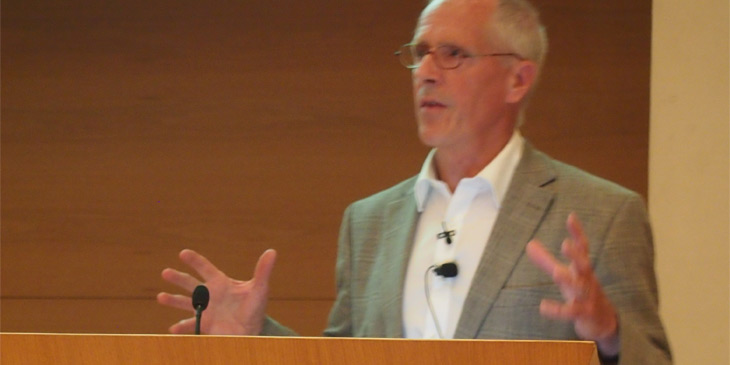17 June 2014

One of the most hotly contested issues in science education – the role and place of practical learning – has been debated at a Cambridge Assessment Network conference.
In one of a series of seminars designed to stimulate debate on matters at the heart of education and training, a large and appreciative audience heard Professor Sir John Holman spell out his views on GCSE and A Level Science reform. He said he felt that changes which will mean science practicals no longer contribute to students’ A Level grades could be damaging.
“I think schools and colleges will conclude that [practical science] is irrelevant for university, and history suggests we should be cautious. There’s a risk here – we don’t know what’s going to happen – it could be good, but it could be bad,” he said.
Sir John went on to say that he had canvassed opinion from universities about the new system – under which students will be given a separate pass/fail for science experiments –and comments included: “students are likely to come to university having been taught not how to do practical work, but how to avoid it”.
Glenys Stacey, Chief Executive of Ofqual, attended the event, making a powerful case for the changes to A Level and the proposed changes to GCSE, the latter which will be subject to further consultation.
Taking questions from the audience after Sir John’s speech, she said “no decision has been more difficult than this one – it has been very testing indeed.”
“It has been a very interesting discussion and I’m very glad to be here. We need to have more of these conversations in order to inform the option or options that we put in a future consultation,” she said.
“We are optimistic – many teachers have been really punching the air about the opportunity to teach practical science and practical skills, which gives us some cause for hope at least”.
Earlier, Tim Oates, Cambridge Assessment’s Group Director of Assessment Research and Development, had introduced Sir John with a short speech of his own. He said practical work was vital and it should remain an important outcome of the education system, but that the current system put teachers in an untenable position.
“Teachers are expected to achieve annual improvements in grade outcomes, while acting as awarding body proxies regarding consistent, fair marking,” he said.
The Department for Education has stated that the changes will see practical work play a far bigger part in science A Level than it currently does.